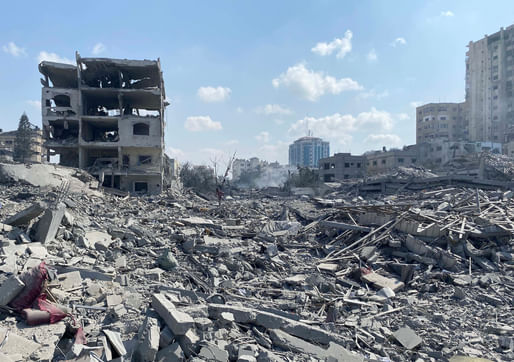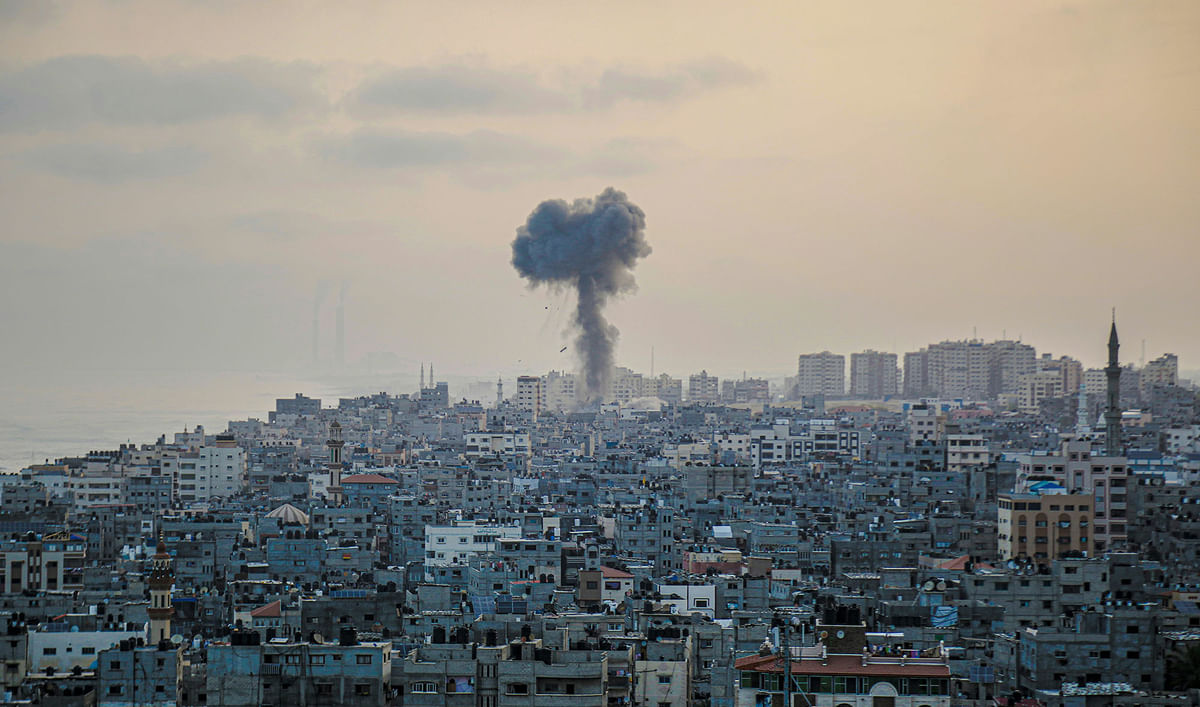Several participants in the Chicago Architecture Biennial have withdrawn from the event over funding from Crown Family Philanthropies, an organization invested in a contractor with ties to the Israeli military. The Crown Family owns a 10% stake in military contractor General Dynamics, which “manufactures weapons and warcrafts, including those used by the Israeli military in its ongoing assault on Palestinians in Gaza such as the 2,000-lb MK-84 bomb,” according to the group, who released an open letter on September 18th. Last week, a United Nations commission of inquiry said that Israel has committed genocide against Palestinians in Gaza.
“We believe that the aforementioned sponsorship is incompatible with the values of our work as well as with the event’s stated mission of addressing ‘architecture’s role in shaping our collective future’ and ‘pursuing radical change,’” the letter reads. The statement is signed by 22 participants, nine of whom are listed as a “withdrawing participant.”
In response to an earlier letter from the group, CAB’s Executive Team noted on August 8th that “The Crown Family Philanthropies’ financial contribution to the Chicago Architecture Biennial supports K–12 arts education programs and is not used to support participant exhibition production or curatorial content.”
In response, the group noted that the Crown Family’s funding of educational programs instead of exhibitions “makes the situation more painful,” adding:
“The realization that an educational program in Chicago is funded with capital which (even if indirectly) comes from the gains made at the expense of the destruction of life and education facilities in Gaza is both contradictory and concerning. We do not want our work to serve as a cultural facade or as reputational laundering for violations of human rights and war crimes currently under investigation (in Palestine or elsewhere).”
 Related on Archinect: New U.N. report warns of potential decades-long rebuild for Gaza. Image courtesy Wikimedia Commons (CC BY-SA 3.0 Deed)
Related on Archinect: New U.N. report warns of potential decades-long rebuild for Gaza. Image courtesy Wikimedia Commons (CC BY-SA 3.0 Deed)
The group’s new letter also claims to have offered the CAB Executive Team to “collectively replace the contribution from Crown Family Philanthropies, ensuring the Biennial would suffer no financial hardship,” adding that “the Executive Team’s refusal to accept this solution makes it clear for us that retaining this donor does not merely come from economic necessity.”
This statement appears to be in response to a letter from CAB’s Executive Team on August 14th, which said: “Thank you for your thoughtful message and for the generosity of your proposed solution. We respect the conviction behind your position. We are actively fundraising to meet the budget needs for the 2025-26 Biennial, and are not in a financial position to return funds already committed. Returning any donation with just a few weeks until opening would challenge our ability to raise the additional resources needed for this edition, and for our future.”
The withdrawing group concludes their letter by calling on the CAB Executive Team to “not accept further funding from Crown Family Philanthropies or any other sponsor involved in the perpetration of war crimes” for future editions of the event.
“We fully align with CAB 2025 SHIFT: Architecture in Times of Radical Change mission and curatorial vision, and we appreciate the time that the curatorial team has taken to attend to our concern,” the letter concludes. “This, together with the variety of participants’ circumstances and a threatening political atmosphere haven’t made our decisions easy. And yet, we remain committed to ensuring that our field does not continue operating as a tool for the perpetuation or silencing of violence, inequality, dispossession and destruction.”
 Previously/related: The Exhibitionary Complex
Previously/related: The Exhibitionary Complex
This is not the first time the Chicago Architecture Biennial has faced controversy over sponsorship. In 2017, Archinect published “The Exhibitionary Complex”, which examined the event’s relationship with corporate sponsors such as BP and raised broader questions about the role of “dirty money” in architectural exhibitions.
Archinect has reached out to the Chicago Architecture Biennial for comment on the latest letter.

